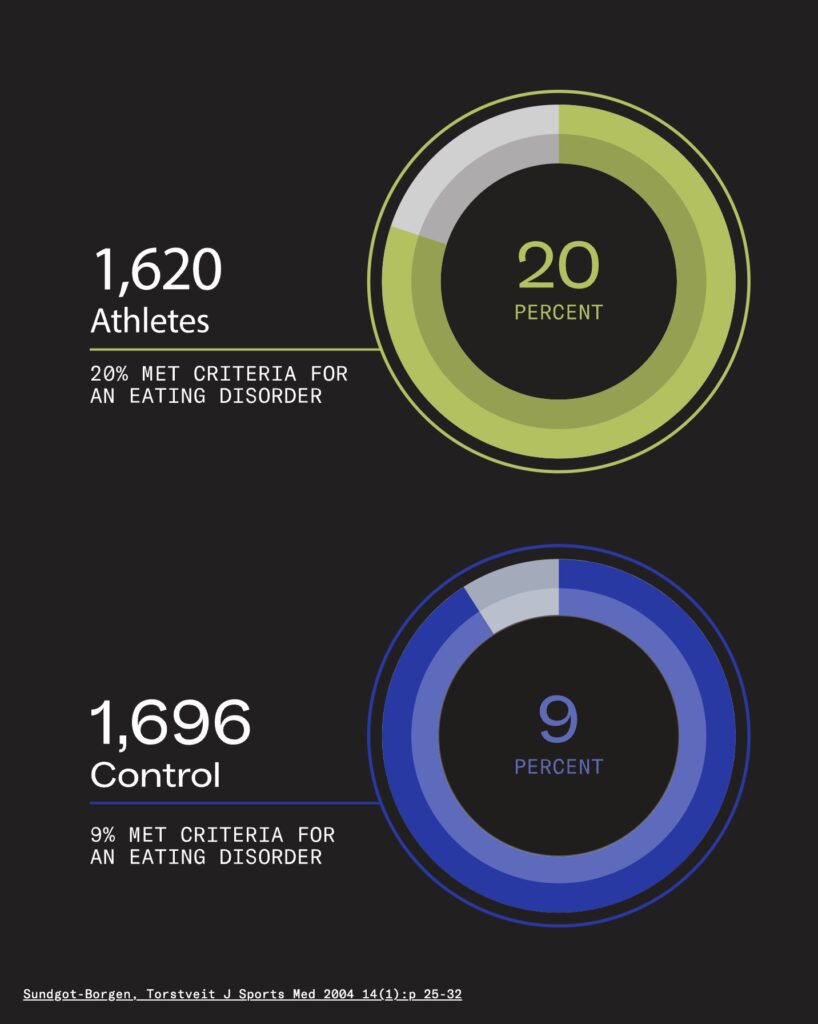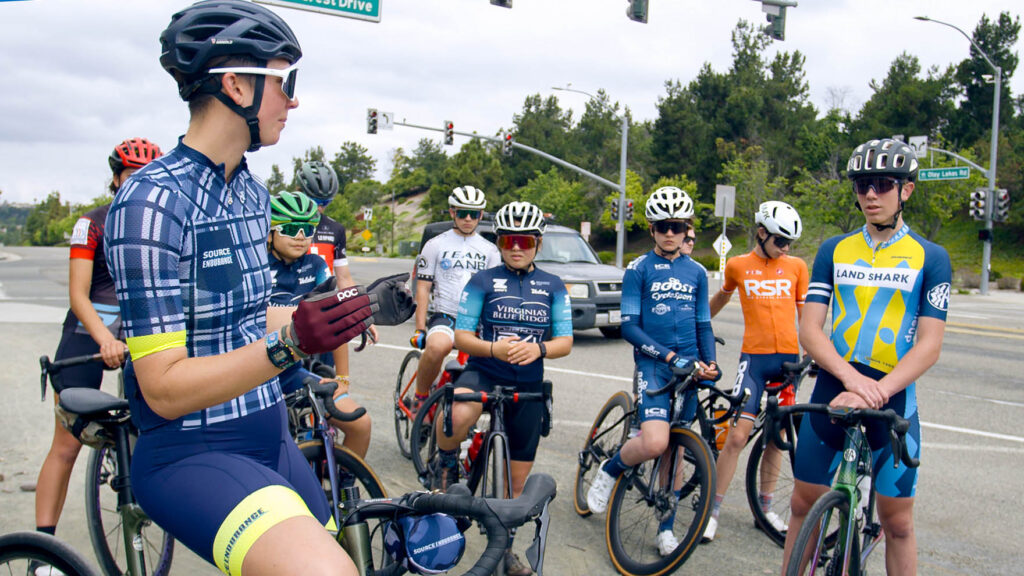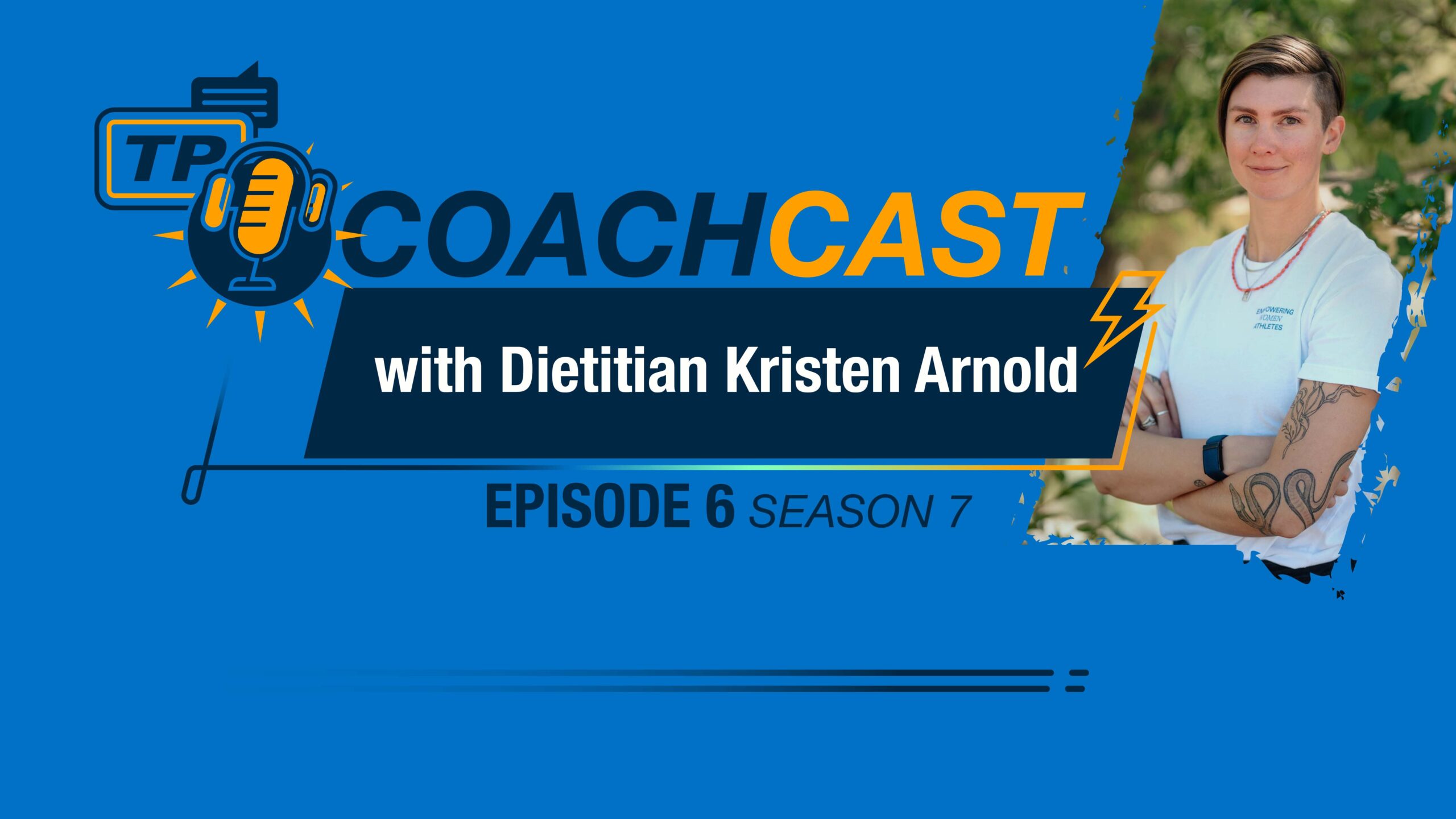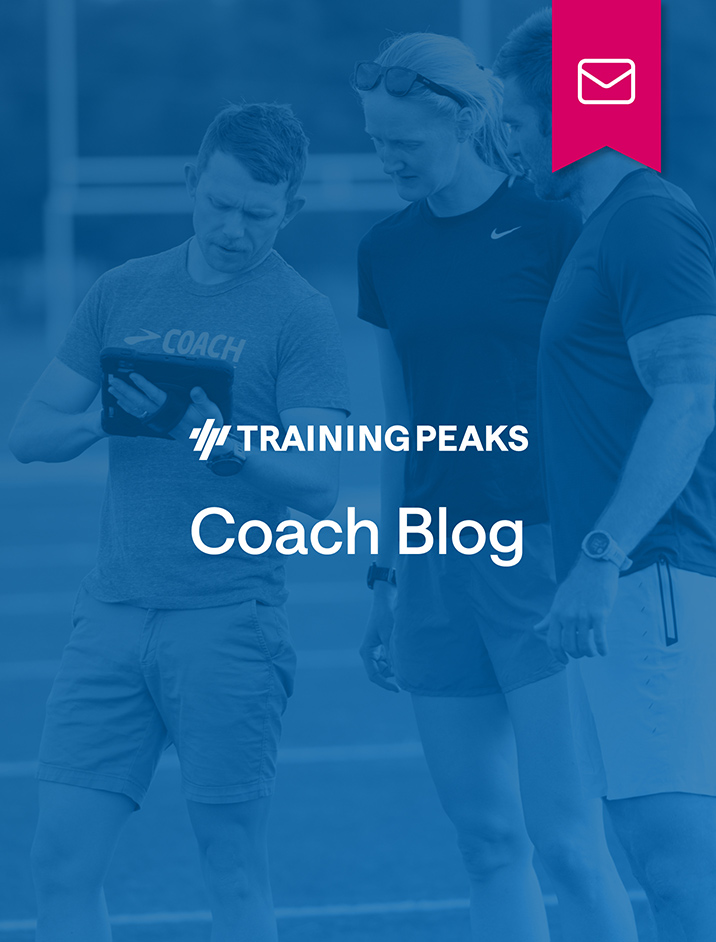In this episode of the CoachCast, host Dirk Friel sits down with Kristen Arnold, a registered dietitian, elite cycling coach, and former pro racer, to unpack the complex relationship endurance athletes often have with food and body image. Drawing from her coaching and clinical experience, Kristen explores how disordered eating patterns can quietly surface in training environments that overemphasize being lean, disciplined, or performing at any cost.
Kristen offers practical strategies for coaches and athletes to identify red flags, reframe food as fuel (not a reward or punishment), and prioritize long-term health alongside results. From race-day fueling to an off-season mindset, this conversation challenges outdated norms and empowers listeners to pursue performance with compassion, curiosity, and balance.
Standout Quotes
The Role of Coaches in Athlete Development: “I always feel like and think of coaches as the mentors and the guiders for athletes. So, athletes absolutely look up to their coaches. They want to appease their coaches and do what they can to be the most successful in their eyes, and so it’s a really great, exciting opportunity to provide a positive influence on both athletes for their performance and also their long-term development.
“Coaches are in a powerful position. You don’t need to be a nutritionist, but you do need to be aware of what messages you’re reinforcing. Saying things like ‘you look fit’ or praising weight loss without context can unintentionally cause harm.”
“I think my mission overall is to encourage balanced relationships with food in both fuel for performance, health and vitality and also pleasure.”
Her Approach to Coaching Nutrition
Rethinking “Good” and “Bad” Foods: “It’s not really that any of these foods are good foods or bad foods, but some have more nutrients. So vitamins and minerals and others have more energy. And so explaining foods in a way that you are emphasizing the context of when that food makes sense is a really great way for parents and coaches to communicate, like healthy performance-focused eating habits.”

Perceptions and Mindsets of Endurance Sport: “I think we need to stop glorifying suffering. Endurance athletes already train hard, but there’s this belief that if you’re not constantly grinding, restricting, or feeling depleted, you’re not trying hard enough. That mindset burns people out and wrecks their relationship with food and sport.”
“They’re getting lactate testing, VO2 max testing, and they feel pressure to hit certain numbers and they relate it to their self worth if they do or don’t hit those numbers.”
Athletes and Self-Worth
Warning Signs of Disordered Eating in Young Athletes: “The most common [warning signs] for young athletes, again, it kind of depends on the setting you’re in, but the strongest predictors are one, accumulating list of food restrictions. So there are athletes who make choices to be vegetarian, vegan, things like that, for a lot of reasons. And that definitely doesn’t mean they have disordered eating tendencies, but as those restrictions accumulate, that’s when we need to start paying attention. [Two], if athletes don’t want to participate in team meals. So we know that having breakfast together as a team, having a pre-race dinner the night before — these are really great bonding activities. But certain athletes will opt out or make excuses. [Three] restricting food specifically for body weight or size changes. So if they’re communicating that they aren’t eating or they’re only eating certain types of foods for body reasons, that’s another red flag.”
More Than Just Nutrients
“Nutrition isn’t just about macronutrients—it’s about your relationship with food. If eating gives you anxiety or guilt, that’s not elite-level discipline—that’s something to look at more closely.”

Resources discussed in this episode:
- Environment and Language Guide for Discussing and Managing Physique
- USOPC Sports Nutrition Resources for Young Athletes
- Directory of Registered Dietitians
- Sports Nutrition for Women E-Course
- HEXIS App
- Fulein App



